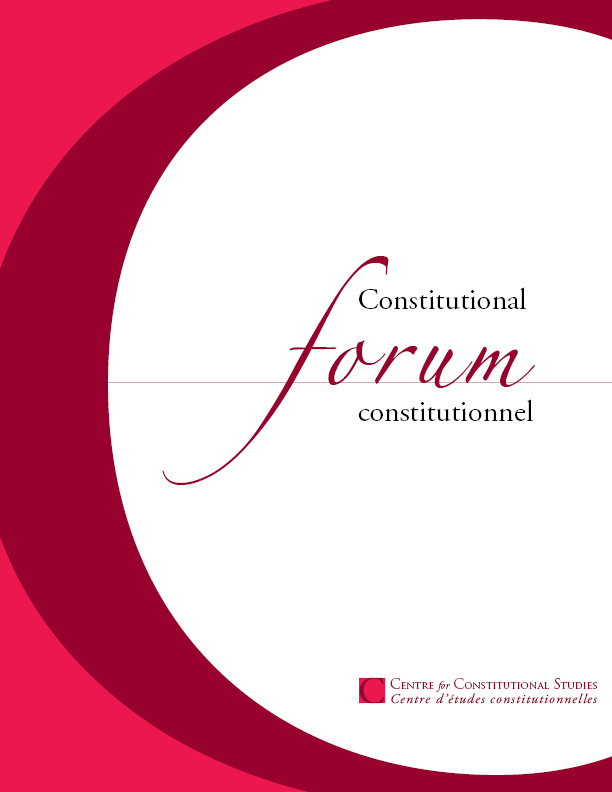From Isolation to Inclusion: How the Charter Changed our Perceptions of Being and Belonging
DOI:
https://doi.org/10.21991/cf29448Abstract
The Canadian Charter of Rights and Freedoms is an indispensable catalyst in shaping Canadian identity, forming a rich and diverse mainstream that integrates and intermingles many streams of human experience. The idea of Canada and what it means to be Canadian is dynamic and evolving, empowered by a Charter that arguably for the first time recognized and affirmed Indigenous peoples as the founding nations of Canada, and nurtured a sense of inclusion that promoted unity in diversity. Just as emergence from the Covid-19 pandemic has been a journey from isolation to inclusion, so has the forging of Canadian identity since the adoption of the Constitution Act, 1982. Drawing from stories shared in a circle aux batons-rampus, and from observations from a four-decade career as a public intellectual, I argue that Canadians’ evolving sense of being and belonging, brought into even sharper relief by the Covid-19 pandemic, is shaped by a Charter which embraced both individual and collective rights.

Downloads
Published
Issue
Section
License
Copyright (c) 2022 Satya Brata Das

This work is licensed under a Creative Commons Attribution-NonCommercial-NoDerivatives 4.0 International License.
Authors who publish with Constitutional Forum constitutionnel grant the journal the right of first publication, and agree to license the work under an Attribution-NonCommercial-NoDerivs (CC BY-NC-ND) that allows others to share the work for non-commercial purposes, with an acknowledgement of the work's authorship and initial publication in this journal, as long as no changes are made to the original work. Please use this format to attribute this work to Constitutional Forum constitutionnel:
"First published as: Title of Article, Contributor, Constitutional Forum constitutionnel Volume/Issue, Copyright © [year], Publisher"




